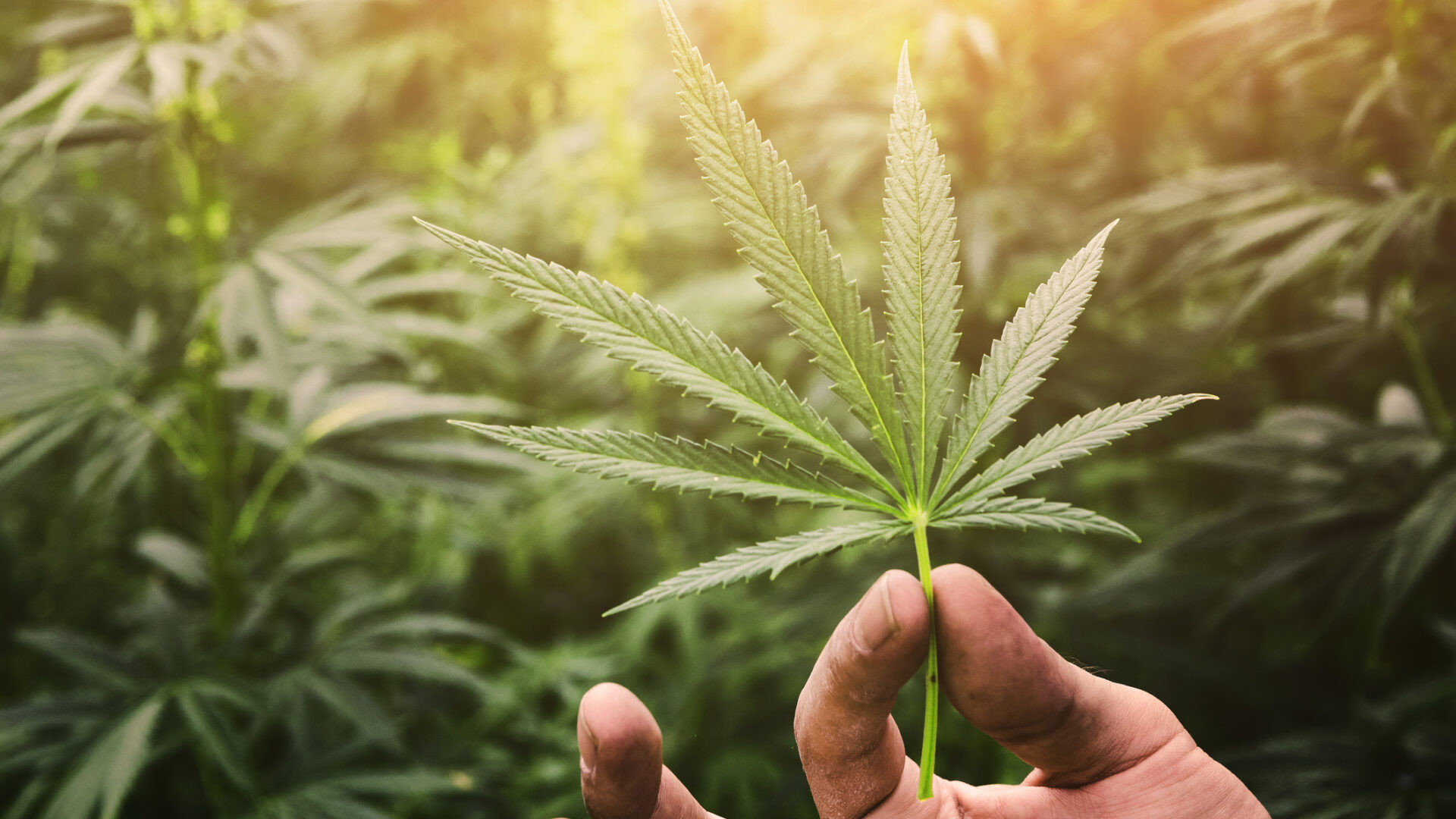Potential Benefits of THC for Workout Recovery
For athletes and fitness enthusiasts constantly seeking ways to optimize recovery, THC has emerged as a potential game-changer. While research is ongoing, preliminary studies suggest that THC may offer several benefits for post-workout recovery, including reducing inflammation, easing muscle soreness, and promoting relaxation.
Reduced Muscle Inflammation
THC’s potential anti-inflammatory properties could be particularly beneficial for athletes dealing with muscle soreness and inflammation after intense workouts. Studies have shown that THC can interact with the endocannabinoid system, which plays a role in regulating inflammation throughout the body. By modulating this system, THC may help to reduce inflammation at the muscle tissue level, leading to faster recovery times.
Moreover, THC has been known to have analgesic effects, meaning it can help alleviate pain. This could be helpful for athletes experiencing delayed-onset muscle soreness (DOMS) or other types of workout-related pain. By reducing pain perception, THC might allow athletes to move more freely and resume their training sooner.
Pain Management
Beyond its potential impact on inflammation and pain, THC’s ability to promote relaxation could also contribute to improved workout recovery. Stress and anxiety can hinder the body’s natural recovery processes. THC’s relaxing effects may help athletes de-stress after intense workouts, allowing their bodies to focus on repair and rebuilding muscle tissue.
Improved Sleep Quality
Furthermore, THC has been linked to improvements in sleep quality, which is crucial for overall recovery. Sleep allows the body to repair and rebuild muscles, consolidate memories, and release growth hormones essential for muscle development. THC’s ability to induce relaxation and drowsiness may promote deeper and more restful sleep, aiding in the recovery process.
Potential Risks and Concerns
While THC shows promise for workout recovery, several potential risks and concerns warrant careful consideration. These include its psychoactive effects, which can impair coordination and judgment, potentially leading to accidents or injuries. Additionally, THC’s interaction with other medications athletes may be taking is not fully understood and could lead to adverse drug reactions. Furthermore, the long-term effects of regular THC use on athletic performance and overall health are still being investigated.
Drug Interactions
THC can interact with certain medications, potentially leading to dangerous side effects or reduced efficacy of the medication. It is crucial for athletes to consult with their doctor or pharmacist to understand the potential interactions between THC and any medications they are currently taking.
Another concern is the psychoactive effects of THC, which can impair coordination, judgment, and reaction time. These effects could be particularly problematic for athletes engaged in activities requiring precision, balance, or quick decision-making. Using THC before or during training or competition could increase the risk of injury.
Impaired Coordination and Cognitive Function
THC’s potential benefits for workout recovery are promising, but it’s crucial to acknowledge the associated risks.
- Impaired Coordination and Cognitive Function: THC can negatively impact coordination, judgment, and reaction time. This can be especially dangerous for athletes participating in activities requiring precision or quick decision-making.
- Drug Interactions: THC can interact with various medications, potentially leading to adverse reactions or reduced medication effectiveness. Athletes must consult their doctor or pharmacist about potential interactions.

Legality and Accessibility
The legal status of THC varies significantly across jurisdictions. In some areas, it is fully legalized for both recreational and medicinal use, while in others, it remains illegal. Athletes should be aware of the specific laws in their region and adhere to them strictly to avoid any legal repercussions.
Accessibility also poses a challenge. Even where THC is legal, obtaining it may not be readily available or easy for athletes. Regulations surrounding distribution and sales can create hurdles. Moreover, accessing high-quality, tested products that are specifically formulated for athletic recovery purposes could be difficult.
Factors to Consider Before Using THC Soda for Recovery
THC soda has emerged as a potential option for workout recovery, but several factors should be carefully considered before incorporating it into your routine.
Dosage and Product Strength
Before using THC soda for recovery, athletes should carefully consider the potential benefits and risks. Understanding dosage and product strength is crucial to avoid adverse effects.
Dosage recommendations vary widely depending on individual factors such as body weight, tolerance, and desired effects. Starting with a low dose and gradually increasing it under medical supervision is advisable.
Product strength also plays a significant role in determining the potential effects of THC soda. Products with higher THC concentrations may produce more intense psychoactive effects and carry a greater risk of side effects.
Individual Tolerance and Metabolism
Individual tolerance to THC can vary greatly, making it difficult to determine an appropriate dosage for everyone. Factors such as body weight, metabolism, and previous experience with cannabis all influence how the body processes THC. What may be a mild dose for one person could cause significant psychoactive effects in another.
Metabolism also plays a crucial role in determining how long THC remains in the system. Individuals with faster metabolisms may metabolize THC more quickly, leading to shorter-lasting effects. Those with slower metabolisms may experience longer-lasting effects and potential impairment.
Workout Intensity and Type

THC soda has emerged as a potential option for workout recovery, but several factors should be carefully considered before incorporating it into your routine.
- Workout Intensity and Type: THC may be more beneficial for athletes engaging in high-intensity workouts or endurance activities that lead to significant muscle soreness and inflammation.
- Individual Tolerance: Dosage needs vary widely based on individual factors such as body weight, metabolism, and experience with cannabis. Start with a low dose and gradually increase as needed while monitoring your response.
- Timing of Consumption: It’s generally recommended to consume THC soda after your workout, allowing time for the body to recover before engaging in activities requiring alertness and coordination.
Other Recovery Strategies
THC soda has emerged as a potential option for workout recovery, but several factors should be carefully considered before incorporating it into your routine.
- Impaired Coordination and Cognitive Function: THC can negatively impact coordination, judgment, and reaction time. This can be especially dangerous for athletes participating in activities requiring precision or quick decision-making.
- Drug Interactions: THC can interact with various medications, potentially leading to adverse reactions or reduced medication effectiveness. Athletes must consult their doctor or pharmacist about potential interactions.
The legal status of THC varies significantly across jurisdictions. In some areas, it is fully legalized for both recreational and medicinal use, while in others, it remains illegal. Athletes should be aware of the specific laws in their region and adhere to them strictly to avoid any legal repercussions.
Accessibility also poses a challenge. Even where THC is legal, obtaining it may not be readily available or easy for athletes. Regulations surrounding distribution and sales can create hurdles. Moreover, accessing high-quality, tested products that are specifically formulated for athletic recovery purposes could be difficult.

Before using THC soda for recovery, athletes should carefully consider the potential benefits and risks. Understanding dosage and product strength is crucial to avoid adverse effects.
Dosage recommendations vary widely depending on individual factors such as body weight, tolerance, and desired effects. Starting with a low dose and gradually increasing it under medical supervision is advisable.
Product strength also plays a significant role in determining the potential effects of THC soda. Products with higher THC concentrations may produce more intense psychoactive effects and carry a greater risk of side effects.
Individual tolerance to THC can vary greatly, making it difficult to determine an appropriate dosage for everyone. Factors such as body weight, metabolism, and previous experience with cannabis all influence how the body processes THC. What may be a mild dose for one person could cause significant psychoactive effects in another.
Metabolism also plays a crucial role in determining how long THC remains in the system. Individuals with faster metabolisms may metabolize THC more quickly, leading to shorter-lasting effects. Those with slower metabolisms may experience longer-lasting effects and potential impairment.
THC soda has emerged as a potential option for workout recovery, but several factors should be carefully considered before incorporating it into your routine.
- Workout Intensity and Type: THC may be more beneficial for athletes engaging in high-intensity workouts or endurance activities that lead to significant muscle soreness and inflammation.
- Individual Tolerance: Dosage needs vary widely based on individual factors such as body weight, metabolism, and experience with cannabis. Start with a low dose and gradually increase as needed while monitoring your response.
- Timing of Consumption: It’s generally recommended to consume THC soda after your workout, allowing time for the body to recover before engaging in activities requiring alertness and coordination.
Other recovery strategies include:
- Proper nutrition: Consuming a balanced diet rich in protein, carbohydrates, and healthy fats can aid muscle repair and replenish energy stores.
- Adequate hydration: Staying hydrated is crucial for overall health and performance. Dehydration can hinder muscle recovery and increase fatigue.
- Sleep: Getting enough quality sleep allows the body to repair and rebuild muscles, consolidate memories, and release growth hormones.
- Stretching and mobility work: Regularly stretching and performing mobility exercises can improve flexibility, range of motion, and reduce muscle soreness.
- Active recovery: Engaging in light activities such as walking or swimming on rest days can promote blood flow and aid muscle recovery.
Conclusion
In conclusion, THC soda presents a potentially promising avenue for workout recovery, but it’s crucial to approach its use with caution and informed consideration.
- The potential anti-inflammatory and pain-relieving effects of THC could contribute to faster muscle recovery and reduced soreness.
- THC’s relaxing properties might also aid in stress reduction, promoting better sleep quality, which is essential for overall recovery.
However, several factors warrant careful attention before incorporating THC soda into your routine:
- THC can impair coordination and cognitive function, posing risks for athletes engaged in activities requiring precision or quick decision-making.
- Drug interactions with other medications athletes may be taking are a serious concern that necessitates consultation with a doctor or pharmacist.
- Legal status and accessibility of THC vary widely, presenting potential challenges for athletes seeking to use it.
Athletes should start with low doses, monitor their response closely, and gradually adjust based on individual needs. It’s crucial to prioritize safety and consult with healthcare professionals to make informed decisions regarding THC use in relation to athletic performance and overall health.
Find the Best THC Soda Deals Online
- The Role Of Sexual Compatibility In Relationship Satisfaction - November 5, 2025
- THC Seltzers As A Healthier Alternative To Alcoholic Drinks - November 4, 2025
- Skin Texture And Tone Improvement In Haslemere, Surrey - November 2, 2025

